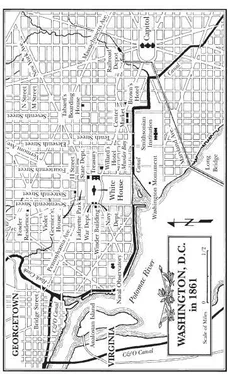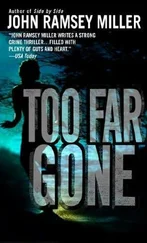John Miller - The First Assassin
Здесь есть возможность читать онлайн «John Miller - The First Assassin» весь текст электронной книги совершенно бесплатно (целиком полную версию без сокращений). В некоторых случаях можно слушать аудио, скачать через торрент в формате fb2 и присутствует краткое содержание. Жанр: Исторический детектив, на английском языке. Описание произведения, (предисловие) а так же отзывы посетителей доступны на портале библиотеки ЛибКат.
- Название:The First Assassin
- Автор:
- Жанр:
- Год:неизвестен
- ISBN:нет данных
- Рейтинг книги:3 / 5. Голосов: 1
-
Избранное:Добавить в избранное
- Отзывы:
-
Ваша оценка:
- 60
- 1
- 2
- 3
- 4
- 5
The First Assassin: краткое содержание, описание и аннотация
Предлагаем к чтению аннотацию, описание, краткое содержание или предисловие (зависит от того, что написал сам автор книги «The First Assassin»). Если вы не нашли необходимую информацию о книге — напишите в комментариях, мы постараемся отыскать её.
The First Assassin — читать онлайн бесплатно полную книгу (весь текст) целиком
Ниже представлен текст книги, разбитый по страницам. Система сохранения места последней прочитанной страницы, позволяет с удобством читать онлайн бесплатно книгу «The First Assassin», без необходимости каждый раз заново искать на чём Вы остановились. Поставьте закладку, и сможете в любой момент перейти на страницу, на которой закончили чтение.
Интервал:
Закладка:
“Do you have a family?”
“My wife and children boarded a train for Richmond yesterday. I plan to join them. Now, sir, I’d like to be on my way.”
“Of course,” said Rook. “You may go.”
Fowler climbed back onto his wagon. The slave tugged at the reins. The horses strained for a moment, and the wagon’s wheels began to turn.
Rook watched them go. He took a piece of paper from his pocket and made a mark on it. Then he thought of the man’s words: “This is a time for choosing sides.” The colonel’s eye wandered upriver, to the right, and settled on a big house that overlooked the Potomac from the Virginia side. This was the home of Colonel Robert E. Lee, and almost everybody in the army wondered what this talented young officer would do when his own time for choosing came.
The sound of a racing horse pulled him from these thoughts. “Colonel! Fort Sumter has given up!” shouted a sergeant as he dismounted. “We just received the official word by telegraph. Anderson gave up yesterday and the firing has stopped. The formal surrender is today.”
“This will stir things up.”
“Yes it will, sir.”
Sergeant Frank Springfield was young, though mature beyond his years. He looked ordinary-brown hair, medium build-except for one thing. He had the bushiest mustache Rook had ever seen. It was so thick above his lip that Rook wondered if the man could breathe through his nose.
Originally, Rook had been skeptical of him: Springfield was an abolitionist, and Rook regarded all abolitionists with suspicion. In his mind, too many of them were radicals who placed the interest of their cause above national unity. Yet Springfield had impressed Rook as an unusually competent aide. It was just like him to hear about Sumter and track down his superior officer. Many men of his rank would not have bothered unless they had been ordered. This ability to take the initiative was why Rook had posted Springfield at Willard’s prior to the inauguration, and why he had come to rely on him even more in the weeks since then.
“Thank you, Sergeant. Will you accompany me to the Winder Building?”
The two men got on their horses and headed north on Fourteenth Street. They soon reached an open field, where a few cows and sheep grazed. The truncated Washington Monument was on the left. To their right was the Smithsonian Institution, a dark red castle that looked like it belonged in medieval Europe. About a mile beyond was the unfinished Capitol. Neither man paid it much heed. They were distracted by the stench of what lay ahead: the canal. It was really an open sewer pit that cut through the city. People emptied all kinds of raw waste into its filthy waters. They occasionally dumped dead animals. The smell would have been bad even if water had flowed through it rapidly, but sometimes the water appeared not to move at all. Attempts to dredge it had failed-the abominable thing kept silting up. Rook and Springfield spurred their horses to pick up the pace and were glad to get beyond the canal’s foul reek.
They turned left and passed just south of the White House. Then the Winder came into view. At five stories, it was one of the taller buildings in the city. It was more functional than magnificent, and that was to Rook’s liking. In a city cluttered with potted streets and stinking sewers, functionality was nothing to take for granted.
It occurred to Rook that unscheduled meetings might take up a good part of his afternoon, now that Sumter had fallen. There would be talk of war. “Sergeant, would you mind riding out past Georgetown and inspecting the Chain Bridge for me? I’m afraid I may not be able to get there today.”
“Yes, sir,” said Springfield. Rook watched him trot another two blocks to Pennsylvania Avenue, turn left, and disappear behind a building. The colonel passed his horse to an attendant and went inside.
“I just heard about Sumter,” he said when he saw Locke. Rook figured that the news might allow the two men to hold an actual conversation.
“General Scott is not here,” said Locke. “He’s meeting with the president.”
Then Locke raised his eyebrows. “That coward Anderson. I think he’s a traitor for giving up so easily. He didn’t put up any kind of fight.”
So there would be a conversation-a disagreeable one. Rook bristled at hearing the word traitor applied to Anderson. He knew many Northerners would criticize the fort’s commander for his decision. Some of the press commentary on Sumter noted that Anderson, like Rook, was from Kentucky-a slave state. Until recently, the major had even owned slaves himself. At West Point, he had been a close friend of Jefferson Davis. His loyalty was under severe scrutiny, and many would doubt it after this new turn of events. But Rook was not convinced. If Anderson were disloyal, what did that make the men who had fired upon him?
“I don’t think he’s a traitor,” said Rook. He recounted Sumter’s plight: low on ammunition, running out of food, no chance of resupply. “Besides, the fort was not built to repel an attack mounted from the guns on shore. Major Anderson was in a terrible position. Under the circumstances, I think he probably did as well as anybody could.”
“As well as he could for whom?” asked Locke, scornfully.
“Men are picking sides right now, and it looks to me as though Anderson has chosen his. He’s from Kentucky, you know.”
Locke is trying to provoke me, thought Rook. Anderson had been ordered to Sumter several months earlier specifically because of his commitment to the Union. Some Northern newspapers had questioned the choice, especially as the crisis in Charleston escalated, but Rook knew that they talked without really knowing what they were saying. That was typical of newspapers. Locke himself should have known better.
“Anderson is a good man. If the federal government cannot rely upon men who feel the tug of divided loyalties but nonetheless stand for the Union, then the United States truly is doomed,” said Rook.
“Feeling a tug, Colonel?”
Rook felt the urge to punch him, but he settled for words rather than fists. “Watch what you say, Locke.”
The general’s aide rolled his eyes and sighed loudly. He returned to the newspaper spread across his desk. An awkward silence fell over the room.
A few minutes later, Scott ambled in. “Both of you,” he said sharply, “come into my office.”
The general collapsed into his usual chair. He looked worn out and distressed. “Tomorrow, the president plans to ask the states for seventy-five thousand soldiers to help put down the insurrection,” he said. “I hardly need to tell you that this will be controversial. I suspect that we will lose several states over it, including Virginia. What a blow that will be.”
Scott frowned. “Virginia has symbolic importance. She is the mother of statesmen: Washington, Jefferson, Madison, and so many others. The prestige of her entering this so-called Southern Confederacy is immeasurable. I’m afraid that losing her may take a military toll as well. It will be difficult to field an army of raw recruits without some of Virginia’s sons at the helm. Worse yet, our capital will become instantly vulnerable. Can you imagine if Maryland leaves too? This city will be like an island surrounded by an ocean of enemies. Colonel Rook, I would like you to put all of your resources behind defending the city from military attack. Do this exclusively. It is clearly the most important threat we now face.”
Rook wanted to reply, but Locke blurted out a question. “Who will lead Lincoln’s army?” he asked.
“As you know, I’m too old for another campaign,” said Scott. He patted his belly. “I’m not fit for one either. I think the best candidate for the job is Colonel Robert E. Lee. He proved himself to me firsthand in Mexico. I marked him back then as a man with a bright future. He displayed his skills again when he captured John Brown at Harper’s Ferry a year and a half ago. I’m going to sleep on it, but I believe that tomorrow I will recommend him to the president.”
Читать дальшеИнтервал:
Закладка:
Похожие книги на «The First Assassin»
Представляем Вашему вниманию похожие книги на «The First Assassin» списком для выбора. Мы отобрали схожую по названию и смыслу литературу в надежде предоставить читателям больше вариантов отыскать новые, интересные, ещё непрочитанные произведения.
Обсуждение, отзывы о книге «The First Assassin» и просто собственные мнения читателей. Оставьте ваши комментарии, напишите, что Вы думаете о произведении, его смысле или главных героях. Укажите что конкретно понравилось, а что нет, и почему Вы так считаете.












